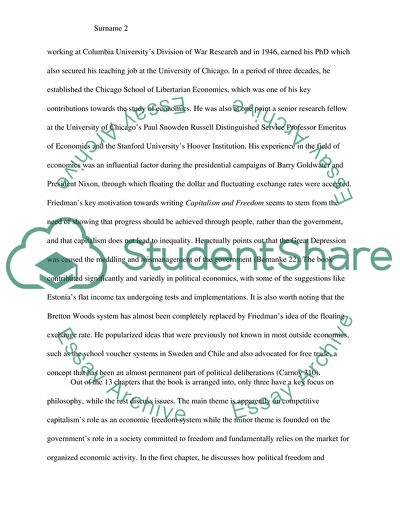Cite this document
(“Capitalism and Freedom Book Report/Review Example | Topics and Well Written Essays - 2000 words”, n.d.)
Capitalism and Freedom Book Report/Review Example | Topics and Well Written Essays - 2000 words. Retrieved from https://studentshare.org/macro-microeconomics/1844744-book-report
Capitalism and Freedom Book Report/Review Example | Topics and Well Written Essays - 2000 words. Retrieved from https://studentshare.org/macro-microeconomics/1844744-book-report
(Capitalism and Freedom Book Report/Review Example | Topics and Well Written Essays - 2000 Words)
Capitalism and Freedom Book Report/Review Example | Topics and Well Written Essays - 2000 Words. https://studentshare.org/macro-microeconomics/1844744-book-report.
Capitalism and Freedom Book Report/Review Example | Topics and Well Written Essays - 2000 Words. https://studentshare.org/macro-microeconomics/1844744-book-report.
“Capitalism and Freedom Book Report/Review Example | Topics and Well Written Essays - 2000 Words”, n.d. https://studentshare.org/macro-microeconomics/1844744-book-report.


